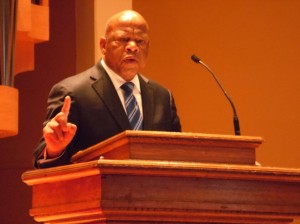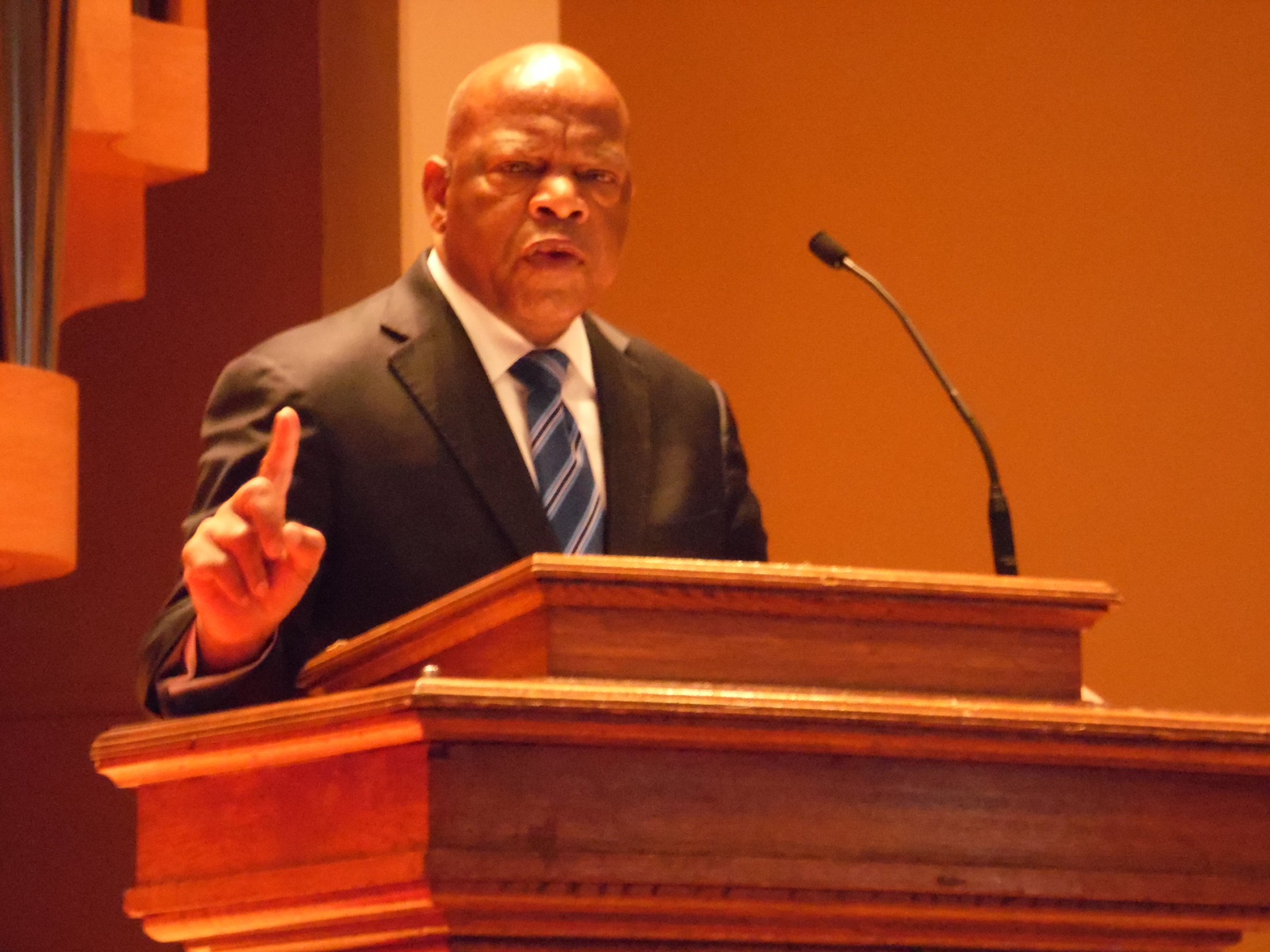
Near the end of an already emotional speech on campus, Rep. John Lewis (D-Ga.) delivered a passionate call for unity.
“It doesn’t matter whether we’re black or white, Latino, Asian-American or Native American, it doesn’t matter whether we’re Democrats or Republicans, it doesn’t matter whether we’re straight or gay – we’re one people, one family,” Lewis said.
Lewis came to campus to receive an honorary doctorate degree, and as one of the “Big Six” civil rights leaders, he has seen firsthand the violence that can follow division.
“Congressman John Lewis was on the frontlines of virtually every struggle for racial justice in the 1960s,” said Professor Michael Flamm of the university’s history department.
Flamm, professor Paula White and Terree Stevenson ’95, all nominated Rep. Lewis for the honorary degree. White is chair of the education department and Stevenson is director of the Office of Multicultural Student Affairs.
In their nomination form, submitted last academic year, the three say that Lewis “is one of the towering figures of the modern civil rights movement.”
“The path he chose was brutally hard at times, but the results historic,” said Michael Long, chairperson of the Board of Trustees, which unanimously approved Lewis’ degree. “This is exactly the type of educational experience we seek to provide at Ohio Wesleyan.”
Lewis received his honorary degree from university President Rock Jones and Rev. Myron McCoy ‘77, an at-large trustee.
“Sir Isaac Newton said, ‘If I have seen further, it is by standing on the shoulders of giants,’” McCoy said in his introduction. “Congressman John Lewis is such a giant.”
Lewis rose to prominence within the civil rights movement with his involvement in sit-ins in Nashville, challenging segregated restaurants. Despite beatings and arrests, he and other activists, trained by Rev. James Lawson, continually practiced nonviolence in the style of Mahatma Gandhi and Henry David Thoreau.
“I literally grew up by sitting down on those wax counter stools,” Lewis said in an interview before the speech.
His lecture, following the presentation of his degree, focused on his experiences in the civil rights movement and modern politics and his belief in the need for unity and reconciliation rather than bitterness and anger.
Jones said that the lecture provided “a terrific evening.”
“I was thrilled so many people were here and so thrilled we were able to hear him speak so powerfully and eloquently about his life and about what it can mean for all of us,” Jones said.
“There were some great questions, people identifying with his life and with the commitments he’s made and thinking about the work that’s still to be done.”
Senior Madeleine Leader was among the students who asked questions of Lewis following his speech, describing how members of the black community and allies have struggled to make their voices heard on campus.
“I was wondering if you can offer any advice so that we don’t get burned out, we don’t become hostile, we don’t become bitter because obviously we want to create positive change for people in the future,” Leader asked.
“Continue to be hopeful, continue to be optimistic and continue to negotiate,” Lewis replied. “Never give up.”
“I think that his approach is extremely important,” Leader said afterward.
“It’s something that we as students today don’t entirely understand because we want everything, now now now. I think embracing his message of love and not getting bitter is only going to help us.”
Even though they’ll be graduating, Leader said they hope to “get in good trouble,” as Lewis put it.
Junior Brianna Robinson, co-director of Ohio Wesleyan’s performance of “Butterfly Confessions” – a series of readings on the experiences of black women – said she thought the event was “absolutely amazing.”
“I kind of wish that (Lewis) knew what we just did over the weekend, but I think it’s amazing that we got to do it and then this is probably one of the greatest events that OWU has ever put on,” Robinson said.
“I think it’s amazing that we got to share the same timeframe of him being here.”
